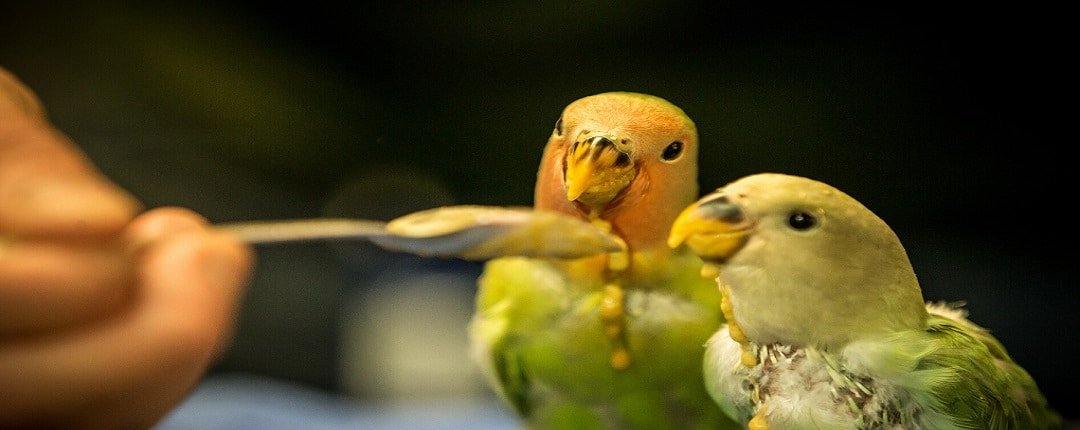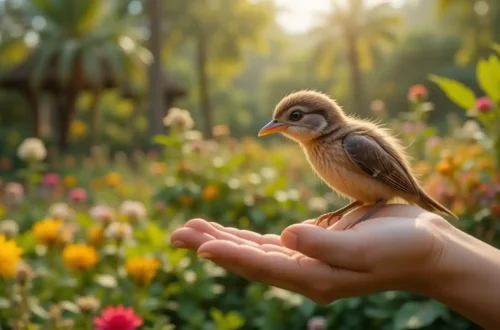The arrival of a feathered friend is a delightful occasion. But with those bright eyes and captivating chirps comes a responsibility to ensure their well-being. Bird care, while seemingly simple, requires understanding their specific needs and providing them with an environment that fosters their physical and emotional health. Worry not, fellow bird enthusiasts! This comprehensive guide will equip you with the knowledge and tools to become the best avian caregiver you can be.
Nest Building: Choosing the Perfect Habitat
Your bird’s habitat is their sanctuary. Choose a cage or aviary appropriate for their species, considering their size, activity level, and social needs. Here are some key considerations:
- Space: Ensure ample room for movement, flapping, and climbing. A good rule of thumb is four times the bird’s wingspan in each direction.
- Ventilation and light: Proper ventilation prevents humidity buildup and respiratory issues. Natural sunlight is ideal, but avoid direct exposure during peak heat.
- Perches and toys: Provide a variety of perches of different thicknesses and textures to keep their feet stimulated and prevent pressure sores. Toys offer mental and physical engagement, so rotate them regularly to maintain interest.
- Substrate: Choose a safe and absorbent substrate for the cage floor. Paper bedding, wood chips, or pelleted options are suitable choices.
Nourishing Nibbles: A Balanced Diet for Feathery Foodies
A balanced diet is crucial for your bird’s health and vitality. Commercial seed mixes form the base, but variety is key. Supplement their diet with:
- Fresh fruits and vegetables: Offer a rainbow of options like apples, carrots, leafy greens, and berries.
- Cooked grains and legumes: Brown rice, quinoa, and lentils provide essential nutrients.
- Hard-boiled eggs and cooked pasta: These protein sources are occasional treats.
- Fresh water: Always provide clean, fresh water in a readily accessible container.
Read more about Dog Care: Your Ultimate Guide to Raising a Happy and Healthy Pup
Feather Fluffing Fun: Keeping Your Bird Entertained
Boredom can lead to behavioral problems in birds. Keep their minds and bodies active with:
- Interactive toys: Puzzles, foraging boxes, and shreddable objects stimulate their natural instincts.
- Rotational toys: Introduce new toys regularly to maintain their curiosity.
- Out-of-cage time: Supervised playtime outside the cage allows for exercise and exploration.
- Bird TV or music: Provide background sounds to mimic natural environments and reduce stress.
Building a Bond: Fostering a Relationship with Your Feathered Friend
Birds are social creatures who crave interaction. Here’s how to build a strong bond:
- Start slow and gentle: Introduce yourself gradually, offering quiet talk and treats. Avoid loud noises or sudden movements.
- Positive reinforcement: Reward desired behaviors with treats, praise, and gentle petting.
- Spend quality time: Share meals, sing songs, and simply enjoy each other’s company.
- Respect individual needs: Some birds are naturally more independent, so allow them space if needed.

Keeping it Healthy: Common Bird Care Challenges and Solutions
While birds are generally resilient, they can face certain health challenges. Be observant and consult your avian vet if you notice any of these:
- Feather loss: Can be due to stress, molting, or underlying medical issues.
- Loss of appetite or lethargy: Seek veterinary advice to rule out illness or nutritional deficiencies.
- Unusual vocalizations: Excessive screaming or chirping can indicate stress or pain.
- Changes in droppings: Consistency, color, and frequency can provide clues about your bird’s health.
Beyond the Basics: Resources for Feathered Flocks (continued)
- Avian veterinarians: Find a qualified avian vet to provide regular checkups, address health concerns, and offer personalized advice.
- Online communities and forums: Connect with other bird owners online to share experiences, ask questions, and gain insights.
- Bird clubs and societies: Join local or online bird clubs for educational workshops, events, and opportunities to socialize with your feathered friend.
- Bird sanctuaries and rescue organizations: Volunteer your time or donate to organizations dedicated to bird welfare and conservation.
- Books and websites: Stay updated on bird care advancements and species-specific information through reliable sources.
Species Spotlight: Understanding Your Bird’s Unique Needs
Caring for birds requires understanding the specific needs of your chosen species. While some general principles apply to all avian companions, catering to their individual traits and instincts is crucial for their well-being. Here’s a glimpse into the world of different bird species:
Parrots:
- Highly intelligent and social, requiring lots of interaction and stimulation.
- Need spacious enclosures with climbing structures and foraging opportunities.
- Prone to boredom and destructive behaviors if neglected.
- Lifespan can vary greatly depending on species, so be prepared for a long-term commitment.
Songbirds:
- Known for their beautiful melodies, they require peaceful environments and minimal stress.
- Smaller cages are suitable, but they provide ample perches and enrichment activities.
- Bathing is essential for their feather health, so offer misters or shallow water dishes.
- May be territorial towards other birds, so consider housing them singly.
Finches:
- Active and playful, needing plenty of cage space and opportunities for exercise.
- Seed mixes are their dietary staple, but they also offer fruits and vegetables for added nutrients.
- Can be kept in pairs or small groups, but ensure compatibility to avoid conflict.
Waterfowl:
- Require access to water for swimming and preening, so consider a pool or misting system.
- Diets include pellets, leafy greens, and aquatic plants.
- Large enclosures are essential, with ample space for swimming and exercise.
- Not suitable for indoor housing due to water needs and potential mess.

Beyond the Cage: Enriching Your Bird’s Life
A stimulating environment is key to a bird’s happiness and well-being. Go beyond the cage and offer enriching activities to keep their minds and bodies active:
- Training sessions: Teach your bird simple tricks like stepping up or targeting a perch.
- Foraging fun: Hide treats in the cage or around the house to encourage natural instincts.
- Sensory experiences: Introduce new textures, sounds, and smells to stimulate their curiosity.
- Outdoor adventures (supervised): Take your bird on short outings in a secure carrier or harness to experience fresh air and new sights.
Read more about Cat Car Seat: Your Guide to Safe and Happy Feline Road Trips
Building a Community: Connecting with Other Bird Enthusiasts
Sharing your passion for birds with others can enrich your experience and provide valuable support. Here are some ways to connect:
- Bird clubs and societies: Participate in meetings, workshops, and events to learn from experienced bird owners.
- Online forums and communities: Share experiences, ask questions, and connect with bird lovers worldwide.
- Volunteer at bird sanctuaries or rescue organizations: Give back to the avian community and learn from dedicated professionals.
- Attend birdwatching events and outings: Explore nature and connect with fellow bird enthusiasts in your area.
Conclusion:
Caring for birds is a rewarding experience, filled with chirps, feathers, and the joy of nurturing life. By providing them with a suitable habitat, a balanced diet, mental stimulation, and a loving bond, you’ll create a thriving aviary where your feathered friends can blossom. Remember, every bird is an individual with unique needs. Be their patient observer, their dedicated caregiver, and their lifelong friend. Embrace the challenges, celebrate the chirps, and witness the wonder of sharing your life with these beautiful, captivating creatures.
FAQ of Bird Care:
- What bird species is best for beginners? Budgies, finches, and parakeets are generally good choices for their adaptability and ease of care.
- How much time should I spend with my bird? Aim for at least 2-3 hours of quality interaction per day.
- How often should I clean my bird’s cage? Spot clean daily and perform a thorough cleaning once a week.
- What are some common signs of a stressed bird? Excessive feather plucking, screaming, pacing, and loss of appetite can indicate stress.
- How can I travel with my bird? Consult your vet and research airline regulations for safe and comfortable bird travel.
Read more about: forexfactoryhub






